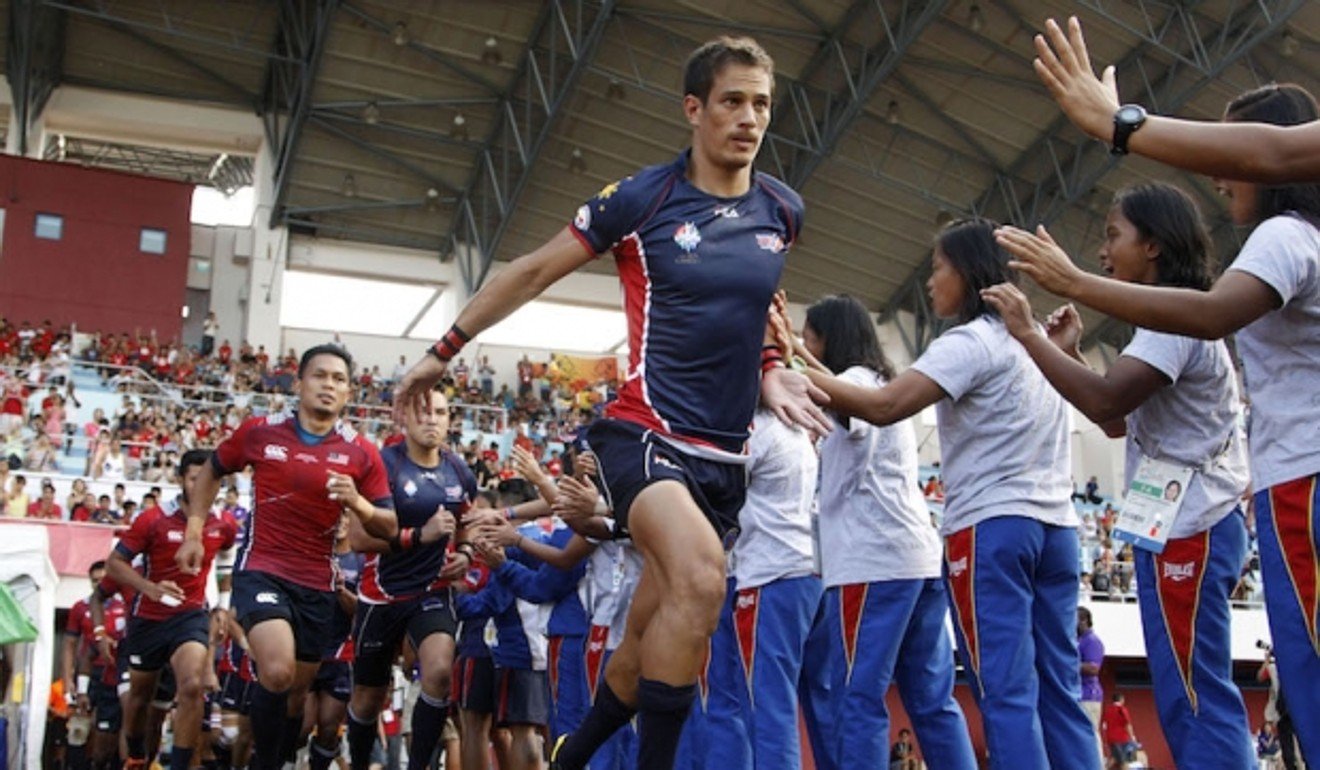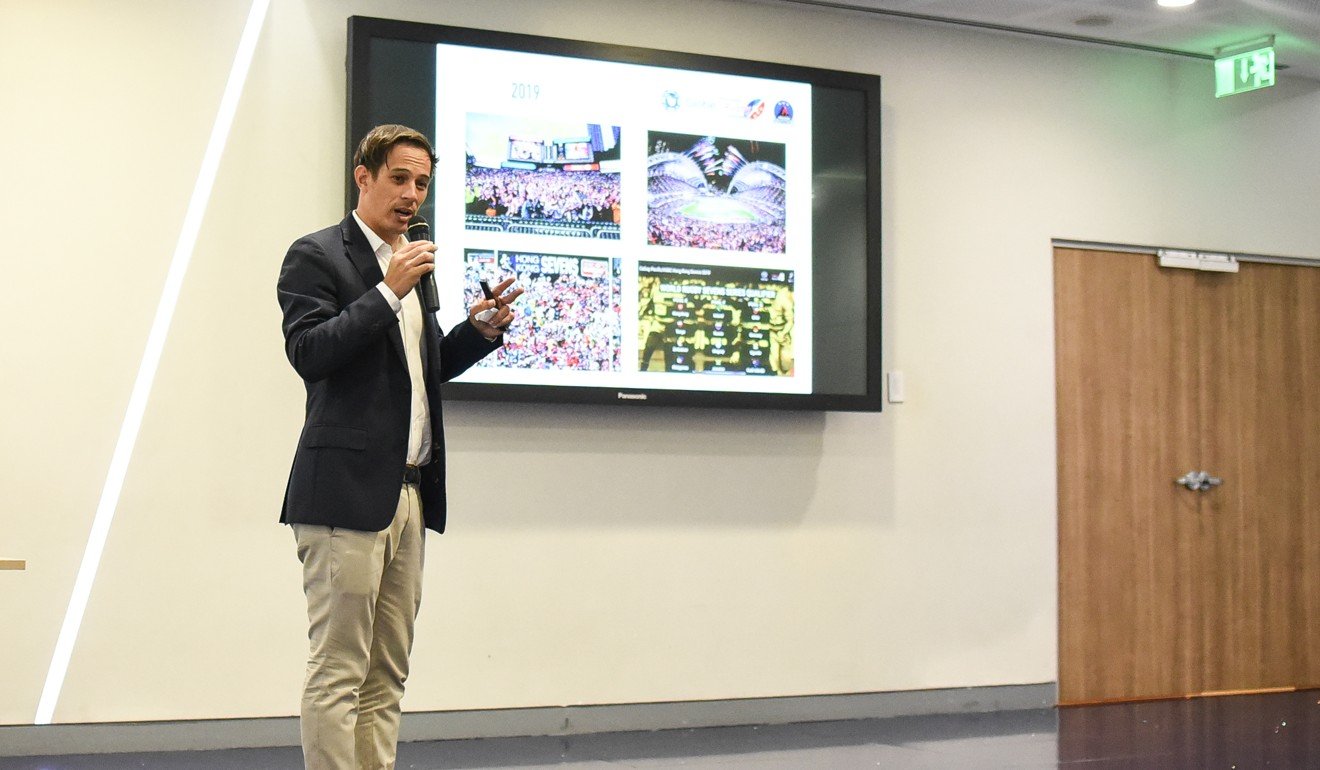
Hong Kong Sevens: Philippine Volcanoes face the same challenges as country, says manager Jake Letts
- Former player brings team now ranked as third-best in Asia back to Hong Kong for first time since 2012
- Squad features players from all over the world
Hong Kong’s large Filipino community comprises mostly of hard-working domestic helpers who send most of their wages back home.
According to national rugby general manager Jake Letts, Filipino rugby works the same way.
“One of the biggest income generators for the Philippines is Overseas Foreign Workers or ‘OFWs’, and that’s basically our system for rugby,” explained 31-year-old Letts. “Everyone in our top 12 for this campaign is an overseas player that qualified to play for us – usually by having a Filipino mother.”
In fact, Letts fits this bill himself, having played for the national team for 13 years. Born to an Australian father and Filipino mother, he is arguably the most accomplished international player in the country’s history.

“Rugby is still a new sport in the Philippines and even though the it’s getting quite popular and the talent is there, the locals usually lack the size and consistency to play at a high level compared to our guys that play overseas,” Letts said.

Fortunately, the Philippines has a massive community worldwide, and there is a big talent pool of players with Filipino blood. For example, 20-year-old Marcus Smith who was born in Manila plays professionally in the UK and was named to the England U20 squad last year.
“The thing about Filipinos is that we’re everywhere,” Letts said. “Our players come from all over the world, be it from Australia, New Zealand, France, the UK or the US, Japan, literally everywhere.
“We never really know where are players are going to come from,” Letts continued. “We do a little bit of recruiting, but our team is very much dependent on players knocking on our door and saying to us ‘I’m Filipino, I want to play for you guys.’ But because we’ve been so successful recently, we have a lot more players coming to us and the team is getting even better as a result.”

Letts said that the Philippines has plenty of local talent, but it’s going to “take a while” before the national team can consistently send out home-grown players.
“Some of it is just genetics – the fact is we are not a tall nation,” explained Letts. “The raw talent is there, but the level of our domestic competitions is still very low and we don’t have enough funding for our grassroots programmes. It’s a bit of a Catch-22 because to get more funding we need to win more, which means local players have to be left off the team.”

Letts was part of the last Filipino team to play in the Hong Kong Sevens back in 2012. He admitted it’s “a little strange” being here in a non-player role, but his mission to help Filipino rugby remains the same.
He is supremely confident about the team’s future. Since the country has a population of 110 million, as well as hundreds of talented international recruits, Letts thinks the Philippines will rival Hong Kong and Japan for spot as top rugby nation in Asia in the near future.
“You’d be amazed at some of the local talent we have, now it’s just about building that foundation at the grassroots level and getting more home-grown players on the team,” Letts said. “I’m confident we will have some as early as this year.”
